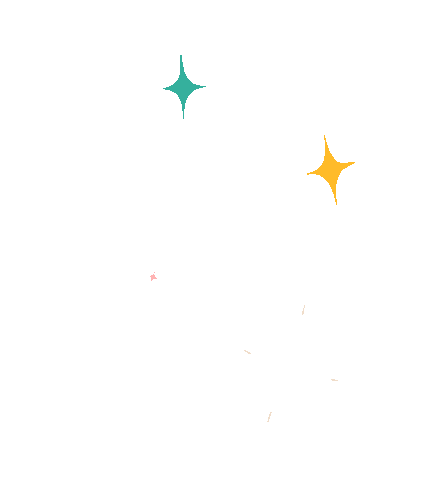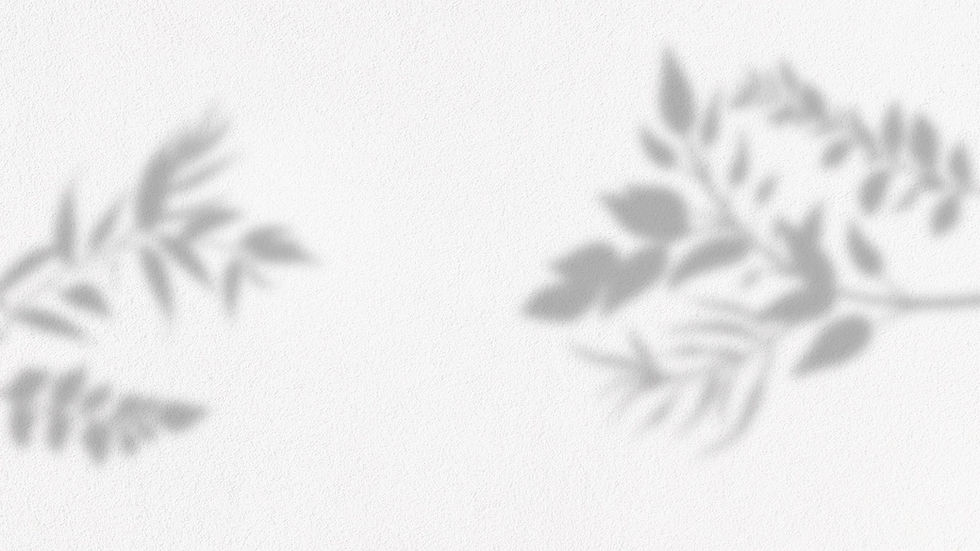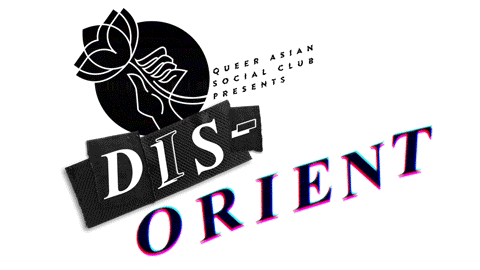


WINTER 2020 VOL. 1 ISSUE 4 | DEC 4, 2020

PERFECTIONISM IS THE VOICE OF THE OPPRESSOR
I've been worried about unemployment since Kindergarten.
"What do you want to be when you grow up?" is both an innocent question and also a capitalist narrative, sub-planted within our brains before we are old enough to tie our shoes (yikes). I've been running hard on the stereotypical Asian-American belief system for as long as I can remember—hard work leads to good grades leads to AP classes leads to college scholarships leads to internships leads to jobs with benefits and 401ks.
The frustrating thing is that this narrative has proven to be true in practice (in combination with my privilege as a light-skinned East Asian person). And yet, at 29 years old I am just now realizing how much I have equated my self-worth with my productivity. It makes me wonder how our addiction to productivity could be reflective of our identities as queer immigrant people. The fear "am I allowed to be here?" manifests as a perfectionism that insists "let me prove that I am worthy."
But I gotta be real with you—productivity and perfectionism just isn't hitting the same after everything that has been revealed in 2020. Staying up working on a project until 4am just to ~feel something~ just.ain't.it. anymore.
While reviewing the pieces for this week's issue, I noticed that our relationship to perfectionism & productivity was a reoccurring topic—revealing that this is something that many of us are grappling with. Scroll on for Maya Reddy's interview with Automic Gold's Al Sandimirova, art by Htet Htet Soe, and "Reflection 落叶归根" by Noa Rui-Piin Weiss // 潘睿品. As a reminder to be gentle on ourselves, we end this week's issue with a Spam Musubi recipe by Ryan Okazaki and an Oracle card reading by Ian Simmons-Francisco.
I'm not sure who needs to hear this, but you have permission to take a break. To make mistakes. To not be perfect.
We still love you and need you, always.

AL
IN CONVERSATION WITH MAYA REDDY
CLUB MEMBER
of the Month:

SANDIMIROVA
AL

In Central Asia, many indigenous cultures have been lost through violent erasure by the Soviet Union—robbing folx of opportunities to connect to and celebrate their ancestral identities and robbing the world of their unique histories. This erasure is not unlike how European colonizers have subjugated (and continue to subjugate) Indigenous peoples in America. We believe that celebrating community (during Thanksgiving and all year round) means celebrating our indigenous siblings whose cultures are too often erased.
This week’s Club Member of the Month is the founder of the brilliant, queer, radical, and gorgeous jewelry company Automic Gold, Al Sandimirova. Al is an amazing central indigenous Asian (Chuvash) queer and trans person that we are beyond thrilled to be in conversation with. In this interview, we explore Al’s identities through reflections on their childhood in the Soviet Union, their rediscovery of trans acceptance in their indigenous culture, and the reclamation of queer BIPOC wealth through gold.
MAYA:
We recently spoke about how you have been discovering your Chuvash identity through TikTok! This is so awesome, and a perfect encapsulation of the times we're living in where identity and community have been so directly influenced by younger generations and the global reach of the internet. What was that experience like for you?
AL:



You feel like you don’t belong to your own culture, but you also don’t feel like you 100% belong in American culture. You feel like you’re without a home, like you don't have grounding.
Social media has been very informative on social issues and causes. I came across a post about indigenous cultures of Asia and I saw the name of my ethnicity and it blew my mind. I then went down a Google rabbit-hole researching and learning about who I am—I'm very thankful Wikipedia exists. It's so bittersweet that my parents refused to teach me more about our indigenous ancestry.
How has this discovery changed your perception of yourself, your community, and your home?
I identified as Russian my entire life until I learned where I actually come from. I had hated identifying as Russian because it had been imposed onto me and was never my culture. My family was ashamed of our ethnicity and didn't teach me the language, and that family choice left me feeling like I didn't belong anywhere.
Why do you think your parents chose to not teach you your indigenous language and history?
I think they believed I would be happier and more successful if I didn’t learn the culture. They blamed their culture for their unhappiness and wanted a better future for me. I remember I once saw a scar on my grandma's back and I asked her, “Where's this from?” And she replied, “Oh, in the ’50s, we had to live in a cave for a few years.” I'm like, “What?! You lived in a cave for a few years… what happened?” She replied, “Nothing, nothing.” I began to ask questions about our history, but my family was ashamed and didn't want to talk about it. It still feels so violent.
My whole family speaks the Chuvash language, but not to me—every time I entered the room they would intentionally stop. They would say, "Don't waste your brainpower on a dead language and culture." I was the only child in the family—no brothers or sisters. I feel like all their hopes were put on me. “Forget about your culture: here’s an education, here are the languages that will lead you to success, focus on this and you will be happier and better.” The system they grew up in forced them to believe this, but there’s violence in the fact that I don’t feel connected to them or the culture.
I totally feel you. It’s the pressure of assimilation. My parents didn't teach me our mother languages when I was growing up—I can understand it a little bit, but I don't speak it. As I've gotten older, it's felt so hard to stay connected to both my parents and my culture, because I don't know the language and history.
You feel like you don’t belong to your own culture, but you also don’t feel like you 100% belong in American culture. You feel like you’re without a home, like you don't have grounding. My parents are also so homophobic. They don't even know that I'm trans—they didn't accept me as a lesbian, so we stopped speaking when I was 17. I’m still so scared. I sometimes think that maybe I should reach out to them, but I need to take care of my mental stability.
It’s hard to reconnect with your culture when the home / family you come from is violent or unsafe.
It’s funny too because my culture originally accepted trans people! Gender non-conforming people were believed to be shamans—the courage to live outside of cishet norms was considered proof that God had blessed them with powers. People came to the shamans for guidance and blessings. I particularly love that there are examples of FTM and MTF shamans of all sexualities. There is an example of a famous MTF shaman who chose to stay with her wife after coming out, which was considered rare even in those times. It's inspirational and reminds me that people like me have always existed and have been fighting to be who they are rather than conforming to cishet norms.
There’s a similar culture of respect around trans folx in Hinduism. Queer and Trans acceptance is so often erased in colonized cultures. Sometimes when we reconnect with our cultures, we realize our identities have always existed.
Learning the history of my indigenous culture and its respect for trans people has made me feel not as lost in this world.
You were telling me that the Chuvash culture is one of the oldest indigenous cultures on the planet, but that the language is now endangered—with less than two million people currently speaking it. How does this reflect the Soviet Union’s communist ideologies?
The idea is that if you erase race, ethnicity, gender, then we are automatically equal. People believed this too because women and people of color did suddenly gain access to education and job positions that weren’t available to them before. But the racism and the misogyny didn't dissolve itself overnight, still to this date. Women can work in higher positions than before, but white men still stayed in power. People still think that the Soviet Union is great, however. There’s a collective mentality that if you just work hard, you can achieve anything you want and your gender and identity don’t matter—you can forget and ignore those parts of yourself.
It's like the “colorblind” narrative, but a more explicit version of it. You also speak to that stereotypical Asian narrative: work hard, get good grades, and you'll be able to succeed. It's so much pressure on all of us. It's interesting to hear this communist obsession with equality because I think in many of our cultures, there is also a similar obsession with the kind of “success” that can only be achieved with hard work.
As you're talking about it, I’m realizing how violent it is that parents force kids to work so hard in Asian cultures. Growing up, I went to two schools—after school, instead of going home to rest, I would go to another school to study music, then I would run home and do homework. We were taught to just work, work, work. The more you work, the more you succeed. You’re not a good person unless you go to senior school. You're a failure if you don’t go to college. You must have a good job.
It is violent. It seems more obvious now because productivity during COVID lockdown has been completely different and something we've had to reassess. All the pressure we put on ourselves to work hard doesn't allow space for us to take care of ourselves. We forget to think about joy as a meaningful aspect of success.
One of the things that I love so much about your jewelry company, Automic Gold is how inclusive and celebratory it is of not just LGBTQ identities, but all people of color. Marginalized communities have historically not been allowed access to riches, so this feels like a reclamation through jewelry. How has discovering and becoming more in touch with your indigenous culture informed or impacted what you do with Automic Gold?
In our indigenous culture, the traditional costume is made out of silver or gold coins, depending on your status. My family had a silver coin dress and head-cover, and your wedding dress is basically your insurance. So this gave me the idea to utilize the investment of materials with the fashion form. I want my jewelry to be available and fashionable, but at the same time, I want it to only be solid gold. It’s an investment for the future. I don't want to sell you fast fashion. So many people ask me to make gold-plated jewelry, but I know that this type of jewelry will be in the garbage after one season. I don't want that and I hope fashion can shift away from this.
People buy $2,000 leather bags even though they wear-out and break. A gold piece will last forever. People think they can’t afford good quality jewelry—spending $200 on jewelry feels like a waste because it’s “just a luxury.” But it’s not like a $200 meal. You’re putting your money into money—gold is basically money right now. Our current capitalist system is trying to convince us that the paper money isn't backed up by the gold anymore (but every time China or Russia buys a lot of gold, it effects the American dollar). They’re trying to convince us that gold is a luxury for spoiled aristocrats. I think this is done intentionally, so poor people don't hoard gold. Gold is still influential and a great investment, and I wish more people had access to it. This is why I try to make designs at all price points.

Gender non-conforming people were believed to be shamans—the courage to live outside of cishet norms was considered proof that God had blessed them with powers.


You’re putting your money into money—gold is basically money right now.




I know it's not exclusive to Asian cultures, but the passing of jewelry is a family tradition for many of us. I think that it is really special that you're creating a space where people can pass down pieces of themselves along with their heirlooms. There is also an added bonus that it's made by somebody like you, who encompasses identities that aren't always represented or celebrated within fine jewelry spaces. Jewelry is also an art form; your voice and perspective become a part of all the pieces folx take home.
I love collaborating with people. They say what they want, and I build it for them. Making their ideas into reality is part of my work.
I wanted to ask you one last question about your identity. The stereotyping and visibility of ‘Asian’ has made it seem like “Asian” equals “East Asian” exclusively. Therefore as a South Asian, I find myself questioning, “Do I identify as Asian?” Considering the complexity of Soviet Union-dominated Central Asia, how do you identify?
I identify as Indigenous Asian. I think we shouldn't listen to stupid white Americans. [Laughs] Asia is one of the most diverse continents.



For more of Al & Automic Gold, follow on Instagram @automicgold
SHOP AUTOMIC GOLD www.automicgold.com
For more of Maya, follow on Instagram & @mayasreddy
This interview has been edited for length & clarity by @thejamielew
IMAGE DESCRIPTIONS
1. AL
Al smiles at the camera in front of a blue background of gold jewelry and plants.
2. AL AT WORK
Al is at work in the Automic Gold stock shelves. Al is looking at a screen, surrounded by their company's jewelry.
3. AL IN 'THE GAYSIAN PROJECT' SHIRT
Al stands on a NYC rooftop. They are wearing a black and white Gaysian Project shirt.
4. COLLAGE OF AUTOMIC GOLD JEWELRY
1. A hand wearing several simple gold rings. 2. A gold band. 3. An ear adorned with a gold chain, a heart, and a two-band ear cuff. All jewelry is available for purchase at www.automicgold.com




ART BY
HTET HTET SOE





Htet Htet Soe, affectionately known as Teddy, was born as a Burmese refugee in Thailand, and grew up most of their life in North Portland. Teddy was the first person in their family to finish schooling in the United States, and pursue a college degree. They struggled with balancing expectations and limitations of their intersectional identities, and with mental health. From a young age Teddy has used art as a way to navigate identities of being queer, trans, and a femme of color in a way that heals. Different themes of their identity and experiences are conveyed through their work, as they use art as a way of processing, healing, and growing.
"The practice of art for me is a way of exploring self, processing emotions, as a way of decolonizing, and as a way of healing. I convey different themes of my identity, as well as my experiences of my identity, through my work. As a queer non-binary femme of color, claiming an identity makes for representation, and that in itself is a statement of there needing to be more representation. Finding connections between my experiences and identities, I struggle to navigate a world that systematically denies me to fully understand myself therefore I practice exploration through creation."
For more of Htet Htet, follow on Instagram @lilsleepypoo



piece features layers of one-line contour drawings, with shapes of colors. text over background reads as a poem separated by stanzas,
“I AM NOT INTIMIDATING
YOU ARE JUST INTIMIDATED BY ME,
MY VOICE,
AND MY EXISTENCE
I AM NOT INTIMIDATED OTHERS ARE INTIMIDATED.
I AM NOT AT FAULT
FOR WHITE PEOPLE SCARED
OF MY VOICE AND MY PRESENCE.”
“intimidation vs. racism;”
rough gesture drawings of three figures. text over image reads,
“SOMETIMES YOU CAN STILL HEAR MY ACCENT
/ REMNANTS OF A LANGUAGE LOSING MEANING ON MY TONGUE.”
%20-%20htet%20htet%20soe.png)
“remnants;”



yellow background, scan of dried flowers in righthand corner. poem pasted with glue reads,
“unlearning past ways,
and teaching yourself
how to take better care
of you and your body is a process...
healing isn’t linear
and sometimes it’s easy
to forget that.
the journey of self
acceptance, self love,
self recovery, and self care
is a difficult one.”

“unlearning;”
a single yellow square, a green square, and a purple square over a pink background. Poem reads,
“MY FAMILY HAS BEEN THROUGH SO MUCH
HAS SACRIFICED SO MUCH
FOR THE OPPORTUNITY OF ‘A BETTER CHANCE’
/YOU SEE ALL THESE SUCCESS STORIES OF CHILDREN OF IMMIGRANTS
WHO ‘BEAT THE ODDS’
/SOMETIMES I FEEL LIKE I’M WASTING THEIR SACRIFICES
/SOMETIMES I FEEL LIKE I HAVE TO BE SUCCESSFUL
SOMETIMES I FEEL LIKE I HAVE TO BE SUCCESSFUL
SOMETIMES I FEEL LIKE I HAVE TO BE SUCCESSFUL
TO SHOW THEM ALL OF IT WAS WORTH IT
/SOMETIMES I FEEL LIKE IMMIGRANTS AND REFUGEES
ARE ONLY CELEBRATED
WHEN THEY CONTRIBUTE TO SOCIETY
AND/OR AMOUNT TO ‘SOMETHING’
/WHAT IF I DON’T BECOME SUCCESSFUL
WHAT IF I DON’T AMOUNT TO ANYTHING
/WILL MY PARENTS BE OKAY WITH THAT
WILL MY ANCESTORS BE OKAY WITH THAT
WILL I BE OKAY WITH THAT”
“will i be okay;”
rough one-line contour figure drawing of self, non-binary Southeast Asian femme. poem above reads,
“BEING A STUDENT OF COLOR IN HIGHER ACADEMIA
AND MAJORLY WHITE SPACES IS TRAUMATIC
AND I FEEL LIKE
IM LOSING MY MIND IM LOSING MY MIND IM LOSING MY MIND
/LOSING MY MIND.”

“19 APRIL 2019;”
one-line contour figure drawings with a layer in oil pastels. texts read
“QUEER AS AN IDENITITY/ QUEER IS POLITICAL,”
“THE PERSONAL IS POLITICAL.”

“personal is political;”

%20-%20htet%20htet%20soe.png)










REFLECTION
落叶归根

BY NOA RUI-PIIN WEISS // 潘睿品
ILLUSTRATIONS BY PEYTON EMERY




I want my reflection to be rows of people stomping their feet and yelling beauty at each other.
Four months before I come out as trans to my parents, I close the door to my room, put in my
headphones, and watch archival footage from Fresh Meat, a queer and trans performance festival.
I watch Elena Rose, a spoken word poet, come on stage and say “I am beautiful.” Then she looks out at
the audience, waiting for them to say it back. “I am beautiful” says a crowd of people off screen, and I can
hear them glancing at their friends, shuffling their feet, avoiding eye contact.
“Say it louder for me, I am beautiful”
And as they repeat it, they get a little louder. Each time they say it, they’re reinforcing this truth, saying I
am beautiful means every person in the audience is beautiful, means Elena Rose is beautiful.
“Say it so loud they can hear you in the damn future”
And I hear them, out in 2020, and I know they’re saying it for me.
They’re saying I am beautiful.
That’s the mirror I want to look in. I want to look at my reflection and see Elena Rose telling herself she is
beautiful. I want my reflection to be rows of people stomping their feet and yelling beauty at each other.
* * *
I watched myself grow up in the mirror of a dance studio. I became familiar with my reflection; short hair,
bony torso, round face, knobby knees, tight shoulders, thin hands, bad feet. You’re not supposed to love
what you see, you’re supposed to fix it.
Kind of trans, when you think about it. I didn’t recognize my own dysphoria because I was surrounded by
young girls waiting for their bodies to change into something they could love. Years of training become
longform body modification. Nothing natural about any of this.
* * *
为了学中文,我从小就开始上双文小学。我妈妈不能自己教我。她的口音是一种无文化的口音。无文化或
多文化的口音。她口音的历史太多:生在纽约,从上海移民的爸妈,上学只学英文,高中会中国(台
湾)。她说的声音都有害怕的味道。
^ Nothing natural about that. Dragging mongrel Chinese out of my brain, out of my keyboard, clinging to
my training. Mother tongue my ass. I had to go to school to be “like” my mom, to be “Chinese.”
* * *
My high school Chinese teacher once told me that children should only learn two languages when they
are young. If they learn more, they lose the ability to differentiate and end up speaking gibberish.
I think about the child who learned three languages, stringing together words that their parents only partially understood. Following internal logic, illegible to the outside world. Imagine being a foreigner to the people who taught you to speak.
* * *
"When did you know?” is the first question my sister asked me after I told her. She and my mom were both blindsided by the news. I imagine what she wanted to ask was, “Where did you learn this?”
It developed out of a makeshift syllabus, pieced together over a semester of college. Testo Junkie, Female Masculinity, My Gender Workbook, We Both Laughed in Pleasure. Gathering sources and evidence, writing counter arguments and conclusions for an essay I hoped I would never have to turn in.
My friends become advisors. My parents become strangers. I become the authors I study.
* * *
My ancestors’ traditions are running away and starting over somewhere new. My bloodline is cutting people out of your life even when you grew up with them. My culture is ghosting your family and listening to the music you want to listen to.
My lineage is a stupid double-back trick. It’s an oxymoron. A catch 22. A cancel out.
* * *
Sometimes, I feel like the only way I know how to love is through imitation.


Imagine being a foreigner to the people who taught you to speak.



Noa Rui-Piin Weiss // 潘睿品 is a dancer, writer, and unlicensed archivist based in Manhattan Valley. He is a queer, trans, Jewish/Chinese halfie. His previous writing has been published by Culturebot and the Brooklyn Rail. As a dancer, Noa has performed works by Adrienne Truscott, Caroline Fermin, Doug Varone, chameckilerner, David Dorfman, and others. He has presented choreography with the Current Showcase (Take.5) and plans to show at Fertile Ground in 2021. Noa spends his time piecing together a canon from dance world idols, transmasc authors, and cursed mash-ups.
For more of Noa, follow on Instagram @weiss.soserious
Peyton Emery is a non-binary student working towards a BS in Media Studies with a minor in Gender and Sexuality Studies. They research mundane spaces, seeking to explore the power dynamics of race, gender, and sexuality within them. In their free time, they enjoy cooking and brewing coffee!
For more of Peyton, follow on Instagram @itmepey
1. MAIN TITLE IMAGE | ART BY PEYTON
Black line drawings of feet. Some with hair, some with not. Set on top of a black and white landscape of forest mountains reflected in water.
2. COLLAGE ONE | ART BY PEYTON
The text "I'm beautiful!" floats over a black line drawing of a head and two hands, each floating in separate squares. "Noa Rui-Piin Weiss" is written in yellow marker.
3. COLLAGE TWO | ART BY PEYTON
A red line drawing of an ornately framed oval mirror. A foot floats in a box. "潘睿品
IMAGE DESCRIPTIONS





INGREDIENTS
1 can of spam*
3 cups of rice (use short-grain sticky white rice, I use either Botan or Nishiki brand)
4 sheets of sushi nori
½ cup soy sauce
¼ cup sugar
¼ cup mirin (optional)
Furikake rice seasoning
*Note: In this recipe, 1 can of spam makes 8 pieces of musubi
YOU WILL ALSO NEED
Musubi mold
Shamoji (or a large spoon to scoop the rice with)
Kitchen knife
Fork or hashi (chopsticks)
Frying pan
Sauce pan
Cutting board
INSTRUCTIONS
1. Wash and cook the rice.
2. Cut the spam into 8 even slices and fry over medium heat until they are dark pink.
3. In a saucepan, heat the soy sauce (and optional mirin) over medium low heat. When the soy sauce
is warm, add the sugar and stir gently until the sugar is dissolved.
4. On a dry cutting board, lay the glossy side of the nori face-down. Place the musubi mold in the
center of the nori and add a layer of rice (about ⅓ of the mold). Wet the bottom of the press and
firmly press down on the rice.
5. Add furikake to taste on top of the rice. Using a fork/hashi, dip the spam into the soy sauce
mixture and then lay it in on top of the rice.
6. Add another layer of rice to fill the mold. Wet the press and firmly press down on the rice. Then,
keeping the press on, lift the mold and put it aside.
7. Fold one side of the nori over the rice. Then, fold the other side of the nori over. Flip the spam
musubi so that the moisture from the rice binds and seals the nori.
8. Cut the spam musubi along the center, between the spam slices, and serve.
TIPS
-
Stir the rice after it cooks to evaporate the moisture.
-
Keep the shamoji in a bowl of water when not in use to prevent rice from sticking to it.
-
When cutting the spam musubi, wet the knife and do not use a lot of pressure. The water helps to break through the seaweed.
-
Cut the spam musubi after letting it sit for a minute. The moisture from the rice softens the nori, making it easier to cut.
-
If you’re using a musubi mold that only fits one piece of spam (aka the Daiso kind), cut the nori in half first. The steps are the exact same, but omit the last step cutting the spam musubi in half.
-
For large parties/potlucks, cut one piece of spam musubi into four finger-food sized pieces.
-
Spam is very high in sodium, so opt for 25% less sodium spam when possible.
-
When making spam musubi, blast the “SPAM Love Song” by Victor Kim, Kevin Wu, and Ryan Higa in the background. Available on YouTube.









SPAM MUSUBI
A RECIPE BY RYAN OKAZAKI





Ryan Okazaki is a non-binary queer Japanese-Filipino American writer whose dream is to feed the masses spam musubi at protests for racial justice. They graduated with a Bachelor of Arts in Ethnic Studies from UC San Diego and has since worked in community-based non-profit organizations, civic engagement, and your local hole-in-the-wall Japanese restaurant.
For more of Ryan, follow on Instagram @pogizaki & TikTok @pogizaki


A Celestial Reading


BY IAN SIMMONS-FRANCISCO
aka The Luna Naughty






FOUR OF SWORDS (IN TRANSITION)
PAST
The Four of Swords encourages us to slow down and gather our strength. When we’re put under chronic stress, it can change the blueprint of our DNA and compromise our health. This card shows a clock crossed by two swords, telling us to take time for ourselves now, because the chronic stress will damage us in the long run. Try some meditation, spend some time with friends, nature, or dance.


The Eight of Wands furthers the importance of taking time and being patient with ourselves. Give yourself time to reflect upon everything in order to get a higher perspective. We are resisting the natural changes of life; this card shows us that without going with the flow of life, we deny ourselves our truest potential/ram of wisdom.
EIGHT OF WANDS (REVERSED)
PRESENT



FIVE OF CUPS (IN TRANSITION)
The Five of Cups warns us that our future will hold sorrow and loss if we keep resisting what the Four of Swords and the Eight of Wands tells us; however, we can avoid this situation of tears if we take time for ourselves to reflect. Put up boundaries with yourself and learn your thought patterns to see if you can break these patterns.
RECAP

FUTURE


We have been denying ourselves the time to really sit back and comprehend and digest everything in life. If we don’t give ourselves the time to reflect when we need it the most, we will experience sorrow and loss that we do not necessarily desire. To avoid this situation, try spending time in nature, with friends, or in meditation. What are you needing to reflect upon in your time to yourself?



Ian Simmons-Francisco is a happa witch studying different types of oracle reading and psychology. Ian’s pronouns are they/them and in drag they go by ‘The Luna Naughty’
For more of Ian/Luna, follow on Instagram @thelunanaughty


TAKE A NAP! (YOU DESERVE IT)
We hope you enjoyed this week's issue of DIS-ORIENT.
Check back next week for the next issue!
Want to submit to next season of DIS-ORIENT?




